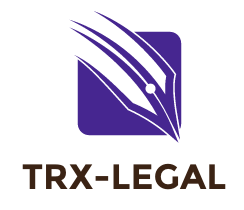The recognition and enforcement of a foreign judgment in France goes through a specific process called Exequatur.
- The exequatur procedure
Exequatur refers to both the procedure and the writ of execution, which are used when a foreign Judgment needs to be enforced in France. This terminology is mostly used in Latin countries such as France, Spain, Italy and Portugal.
All foreign Judgments, court decisions or arbitral awards are not automatically enforceable in France. It is an essential issue for many foreigners who want to assert their rights in in the country since, without an official recognition, the Judgment they obtained will have no effect.
For instance, we can imagine the following scenario where two companies are in dispute in another country. One of them obtains a ruling against the other ordering the latter to pay a certain sum of money. The losing party has its registered office, and more importantly its bank accounts and other various assets, in France. In this hypothesis, the party who benefits from the Judgment won’t be able to force the losing party residing in France to pay what it owes. It will be necessary to ask a French judge to recognize the foreign Judgment as being legally valid and enforceable in France.
- What kind of decisions can be recognized and enforced in France?
Almost all foreign Court decisions can be recognized in France if they deal with civil, commercial, business or any kind of private matters. Foreign Court decisions regarding public or states affairs won’t be enforceable in France.
The decisions which need to be recognized to be enforceable are the following:
- Divorce Judgments,
- Adoption decrees in certain cases,
- Judgements establishing a payment obligation for a person possessing assets in France,
- The civil aspects of a criminal case. For instance, regarding the sentencing to compensate for the damages or injuries suffered,
- Arbitral awards
Conversely, certain foreign decisions won’t need or won’t be able to benefit from the full exequatur proceeding:
- The decisions which do not need to be enforced (divorces without alimony, simple adoptions,…),
- Criminal decisions
For more information on the exequatur proceeding you can visit the corresponding pages by clicking on the drop down menu.
- Rules governing the recognition and enforcement proceedings
The exequatur proceeding is governed by French law and international treaties. Therefore, the conditions to be met will vary depending on the country which has rendered the judgment.
Article 509 of the French Code of civil procedure provides that: Judgements rendered by foreign Courts and deeds received by foreign officers shall be enforceable on the territory of the French Republic in the manner and under the circumstances specified by law.
This article is interpreted and completed by the decisions of the Cour de cassation (the French Supreme Court). In the 2007 Cornelissen case (Cornelissen Cass.Civ February 20th, 2007 n°05-14082), the Cour de cassation ruled that French courts must verify that the foreign Judgment meets 3 conditions. The French judge will verify that:
- The foreign Court has proper jurisdiction under French law,
- The foreign Judgment complies with French procedural and substantive public policies,
- The foreign Judgment was rendered without fraudulent forum shopping (evasion of the law)
These 3 conditions apply cumulatively which means that the foreign Judgment’s recognition will be denied if one of them is not met.
The conditions set forth in the 2007 Cornelissen case apply in the absence of international treaties. A number of countries have signed treaties with France organizing the conditions under which a Judgment may be recognized and enforced. You may check if your country has a bilateral treaty with France by visiting the Country page of the Recognition & Enforcement drop down menu.
- The exequatur proceeding
The recognition and enforcement proceeding is carried out before the Tribunal de Grande Instance which has territorial jurisdiction. The recourse to a French attorney is mandatory.
The attorney will draft a subpoena which will be served to the defendant. It is important to note that the success of the action depends on the foreign decision itself but also on how the recognition proceeding is carried out. It is not uncommon to see such proceedings fail because the original judgment was not properly served to the defendant in France. It is therefore important to seek advice from a French attorney regarding the preliminary steps that must be taken in the foreign country prior to filing for exequatur.
Terence RICHOUX has extensive experience in private international law and particularly with recognition and enforcement proceedings. He possesses the skills necessary to optimize his clients’ chances of success. You can use the Contact form if you have any questions or wish to enforce a foreign Judgment in France.
